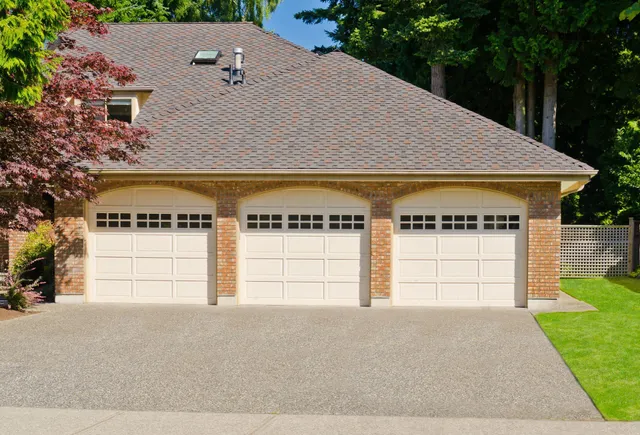The Essentials of Garage Door Service
A well-maintained garage door does more than open and close smoothly. It protects your vehicles, safeguards your home’s contents, and adds to your property’s curb appeal. Over time, parts wear down, alignments shift, or safety features fail—and that’s when service becomes crucial.
Routine garage door service ensures that minor problems don’t escalate into major disasters. By addressing squeaks, misalignments, or sensor issues early, you can extend the life of the door and avoid expensive replacements.
Frequent use, changes in weather, and accidental bumps all contribute to gradual wear. Ignoring these factors can lead to sudden breakdowns—often at the worst possible moments. With scheduled service, you stay ahead of trouble.
Common Issues That Garage Door Service Addresses
One common issue is parent misalignment of sensors. When the safety sensors fail to communicate correctly, the door might not reverse upon hitting an obstacle. A technician adjusts and recalibrates these sensors to restore safe operation.
Another frequent problem is worn rollers or hinges. Rust, dirt, or lack of lubrication causes friction and excessive noise. During service, rollers are inspected, cleaned, and replaced if needed, ensuring quieter and smoother motion.
Broken springs and frayed cables also make regular appearances on the service checklist. These components endure high tension and stress; when they weaken, they threaten the entire door’s balance. Service visits often include load testing and replacement where necessary.
What Happens During a Professional Service Visit
When you schedule a service, a trained technician begins with a full inspection. They examine the springs, cables, rollers, tracks, motor, and safety sensors. This holistic check allows them to spot emerging problems before they impact function.
After diagnosis, repairs are made using OEM or high-quality parts. The technician adjusts spring tension, realigns tracks, tightens hardware, or replaces worn components. Once repairs are complete, they test the door multiple times, checking balance and safety reversal features.
If you want reliable, professional garage door service, consider working with a provider known for expertise and customer satisfaction at garage door service.
Cost Considerations: What to Expect
The cost of garage door service varies depending on the complexity of the tasks. A simple tune-up or sensor alignment might cost modestly, while replacing torsion springs or motors will be more expensive. Labor rates, part quality, and service urgency all factor into the final bill.
Still, service should be viewed as an investment. Regular maintenance prevents catastrophic failures and can save you significant sums down the road. Homeowners who treat garage door service as preventative care often avoid emergency costs that are several times higher.
How Often Should You Schedule Maintenance?
Many experts recommend servicing a garage door at least twice per year. Spring and fall are good times because they bracket the extremes of temperature and humidity changes.
However, if your door is older, used very frequently, or shows signs of strain (noise, sagging, uneven motion), you may benefit from quarterly service visits. Frequent checks keep the system safe, balanced, and trouble-free.
Choosing a Reliable Service Provider
Not all garage door companies offer the same quality of service. Look for technicians who are licensed, insured, and willing to explain their diagnosis. Transparent pricing, warranties on parts and labor, and a local reputation matter greatly.
Given the risks, you want a company that guarantees workmanship and delivers prompt response times. Working with experienced professionals reduces the risk of shortcuts or improper fixes, which can lead to further damage (or worse, safety hazards).
DIY Maintenance Tips Between Services
While professional service is vital, homeowners can also take small actions to keep things running smoothly between visits:
-
Clean the tracks and remove debris regularly
-
Lubricate rollers, hinges, and springs using recommended lubricants
-
Tighten loose nuts and screws
-
Test the safety auto-reverse feature monthly
These simple tasks prolong component life and reduce the strain on the entire system, making service visits more effective and less costly.
Safety Tips You Should Never Ignore
Never perform major repairs yourself—springs and cables store dangerous energy. Always keep children and pets away from a moving or partially open door. Test sensor operation monthly to ensure the door reverses when obstructed.
If the door behaves erratically—jerky motion, misalignment, or inconsistent operation—stop using it immediately and call a professional. Safe operation should always be the top priority.
Service Is a Key to Longevity
Garage door service is more than a chore—it’s essential for reliability, safety, and cost savings. Whether your door is new or aging, regular attention prevents many breakdowns before they occur.
By combining scheduled professional service, careful observation, and regular DIY maintenance, you ensure your garage door remains dependable for years. Investing in this care today helps you avoid emergencies tomorrow.

